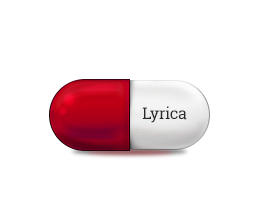
Pregabalin is a medication used world-wide in the treatment of partial onset seizures, postherpetic neuralgia, diabetic neuropathy, fibromyalgia, spinal cord injury neuropathic pain, and generalized anxiety disorder. The actions of pregabalin are mediated through binding with high affinity to alpha-2-delta proteins, which attenuates calcium influx into presynaptic neurons and thereby blocks the release of neurotransmitters, including the excitatory neurotransmitter l-glutamate.


| Package | Per pill | Total price | Save | Order |
|---|---|---|---|---|
| 150mg × 30 Pills | $1.96 | $58.66 + Bonus - 4 Pills | - | Add to cart |
| 150mg × 60 Pills | $1.56 | $93.70 + Bonus - 4 Pills | $24.00 | Add to cart |
| 150mg × 90 Pills | $1.54 | $138.20 + Bonus - 7 Pills | $37.80 | Add to cart |
| 150mg × 120 Pills | $1.51 | $181.10 + Bonus - 7 Pills | $54.00 | Add to cart |
| 150mg × 240 Pills | $1.40 | $336.93 + Bonus - 11 Pills Free Trackable Delivery | $134.40 | Add to cart |
| Package | Per pill | Total price | Save | Order |
|---|---|---|---|---|
| 75mg × 30 Pills | $1.36 | $40.65 + Bonus - 4 Pills | - | Add to cart |
| 75mg × 60 Pills | $1.10 | $65.70 + Bonus - 4 Pills | $15.60 | Add to cart |
| 75mg × 90 Pills | $1.06 | $95.20 + Bonus - 7 Pills | $27.00 | Add to cart |
| 75mg × 120 Pills | $1.00 | $120.10 + Bonus - 7 Pills | $43.20 | Add to cart |
| 75mg × 240 Pills | $0.92 | $221.93 + Bonus - 11 Pills Free Trackable Delivery | $105.60 | Add to cart |
Generalized Anxiety Disorder (GAD) is a prevalent mental health disorder that affects millions of people worldwide. It is characterized by excessive, persistent, and often unrealistic worry about everyday life events, situations, or activities. People with GAD often find themselves feeling overwhelmed, anxious, and fearful, even when there is no apparent reason for such feelings. In this article, we will delve deeper into the symptoms, causes, and treatment options for GAD.
Symptoms of GAD
The symptoms of GAD can vary from one person to another, but they typically include:
- 1. Persistent and excessive worry about everyday things.
- 2. Feeling restless or on-edge.
- 3. Easily fatigued.
- 4. Difficulty concentrating or having a racing mind.
- 5. Irritability.
- 6. Muscle tension.
- 7. Sleep disturbances, such as difficulty falling or staying asleep.
People with GAD may feel anxious or worried about various aspects of their lives, such as work, school, finances, relationships, or health. These feelings can interfere with their daily lives, making it challenging to perform everyday tasks or activities.
Causes of GAD
The exact cause of GAD is not yet fully understood, but it is believed to be a combination of genetic, environmental, and brain chemistry factors. People with a family history of anxiety or other mental health disorders are more likely to develop GAD. Additionally, trauma, stress, or significant life changes, such as the loss of a loved one, divorce, or job loss, can also contribute to the development of GAD.
Brain chemistry imbalances may also play a role in the development of GAD. Neurotransmitters, the chemical messengers in the brain, regulate mood, emotions, and thoughts. When there is an imbalance in the levels of these neurotransmitters, it can lead to anxiety and other mental health disorders.
Treatment Options for GAD
GAD is a highly treatable mental health disorder, and various treatment options are available. The most common treatment options include psychotherapy, medication, or a combination of both.
Cognitive-behavioral therapy (CBT) is a type of psychotherapy that has been found to be highly effective in treating GAD. CBT helps individuals identify their negative thought patterns and replace them with positive ones. People can also learn coping skills and relaxation techniques to manage their anxiety better.
Medications, such as antidepressants, benzodiazepines, and buspirone, can help alleviate the symptoms of GAD. Antidepressants, such as selective serotonin reuptake inhibitors (SSRIs) and serotonin-norepinephrine reuptake inhibitors (SNRIs), work by balancing the levels of neurotransmitters in the brain. Benzodiazepines, on the other hand, can help reduce anxiety but can be addictive and should be used with caution. Buspirone can also help alleviate anxiety but may take a few weeks to work.
In addition to psychotherapy and medication, lifestyle changes can also help alleviate the symptoms of GAD. Regular exercise, a healthy diet, adequate sleep, and reducing stress can help individuals manage their anxiety better. It is also essential to avoid substances such as caffeine, nicotine, and alcohol, which can exacerbate anxiety symptoms.
Conclusion
Generalized Anxiety Disorder is a prevalent mental health disorder that can significantly impact an individual's daily life. It is characterized by excessive, persistent, and often unrealistic worry about everyday things. While the exact cause of GAD is not yet fully understood, a combination of genetic, environmental, and brain chemistry factors appears to be responsible. Fortunately, various treatment options are available, including psychotherapy, medication, or a combination of both. Lifestyle changes can also help alleviate the symptoms of GAD. If you or someone you know is struggling with anxiety, it is essential to seek professional help.






